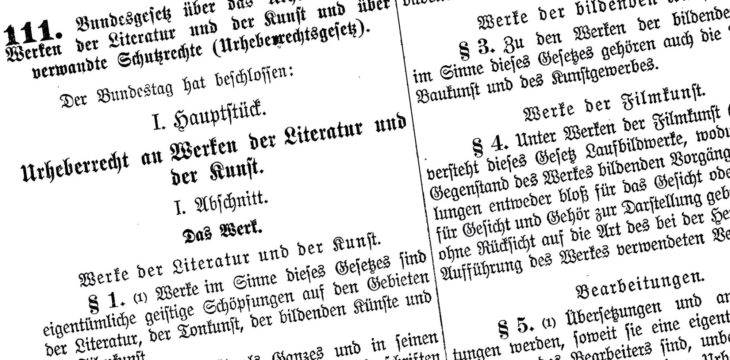“Copyright concerns us all: Let us jointly find and develop new consensus-based solutions for a modern and fair copyright!”
Background
During the last decade, the ways of distributing und consuming copyright protected creations have radically changed. In the light of an emerging ‘digital economy’, which is especially fostered by a wide availability of broadband-technologies, cloud-computing services and the interactive collaboration of users, the traditional concept of copyright is subject to a broad public debate. From a legal, economic and social perspective, this paradigm-shift rigorously challenges the classical copyright doctrine, which follows an “analogue-world”-approach. Against this background, a well-balanced, modern copyright must acknowledge technical developments and strike a balance between the interests of the stakeholders (authors, rightholders, users).
The project at a glance
The INTER-ACT project builds upon the Sparkling Science research project FROM “USER-GENERATED-CONTENT” TO A “USER-GENERATED-COPYRIGHT” (www.u-g-c.at) and the research findings that were elaborated within this project. The aim of INTER-ACT is to develop an experimental demonstrator for an electronic interaction and discussion platform, which enables citizens of all stakeholder groups (users, authors, publishers etc) to participate in drafting and discussing model proposals for copyright regulations. Thereby, the project follows an interdisciplinary “citizen-science approach” combining legal and social sciences methodology.
Against this background, the INTER-ACT project pursues the following research objectives:
By opening the research process for citizens, INTER-ACT follows a participative approach for developing laws and regulations. Thereby, the project aims at extending previous legal research initiatives that proposed model laws on Intellectual Property (e.g. the WITTEM-Code). The participation of citizens will enable researchers to empirically investigate users’ perceptions of, and expectations on, copyright law. Furthermore, as citizens of all stakeholder groups participate in the drafting and discussion process, the model regulatory proposals will be drafted in an open, transparent, evidence- and consensus based process and will not merely be the static end result of a one-time process, but will be dynamically adapted according to the citizens’ participation. Therefore, they will provide the legislator with a dynamic reference framework for creating modern copyright regulations on a broad social consensus. By involving citizen scientists, further key objectives are to strengthen the citizens’ influence in the legal discourse and, ultimately, to increase copyright awareness.
How to participate?
Citizen Scientists can participate proactively in a variety of ways, depending on their knowledge, interest and time budget. The participation is enabled by the electronic interaction and discussion platform, which is developed by HTL Krems students in the school year 2017/18 as part of their diploma project. The platform will provide an open process for a consensus-based development of model copyright regulations as well as the possibility to discuss and comment on these model regulations. Citizien Scientists can participate in all stages of the research process (from the process of identifying shortcomings of the current law to developing and discussing model regulatory proposals and the evaluation of these processes).
What happens to contributions of citizen scientists?
All contributions of Citizen Scientists in the publicly accessible area of the interaction and discussion platform are part of an interactive, publicly accessible discourse and are subject of the scientific evaluation. Therefore, these contributions are of key importance for the development of the model regulations, which should serve as a dynamic reference for the legislator in order to design a modern and well-balanced copyright system. The scientific evaluation builds upon the interaction with all interested Citizen Scientists as well as on electronic evaluation. Personal information is kept confidential in accordance with the applicable data protection regulations.
Funded by the Federal Ministry of Science, Research and Economy (BMWFW) under the funding program Top Citizen Science (07/2017-07/2019)

